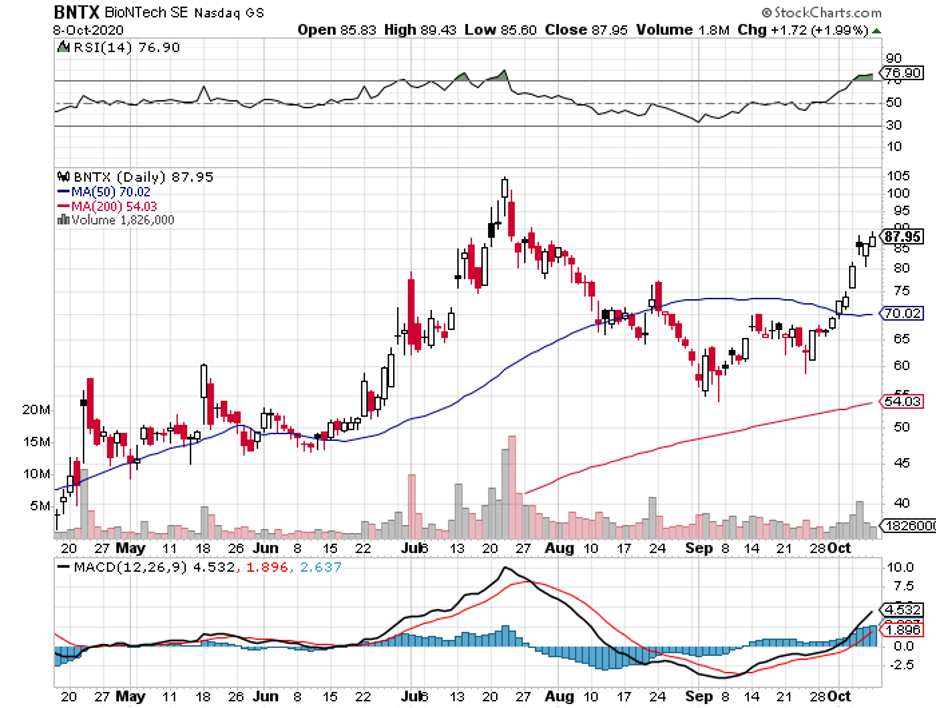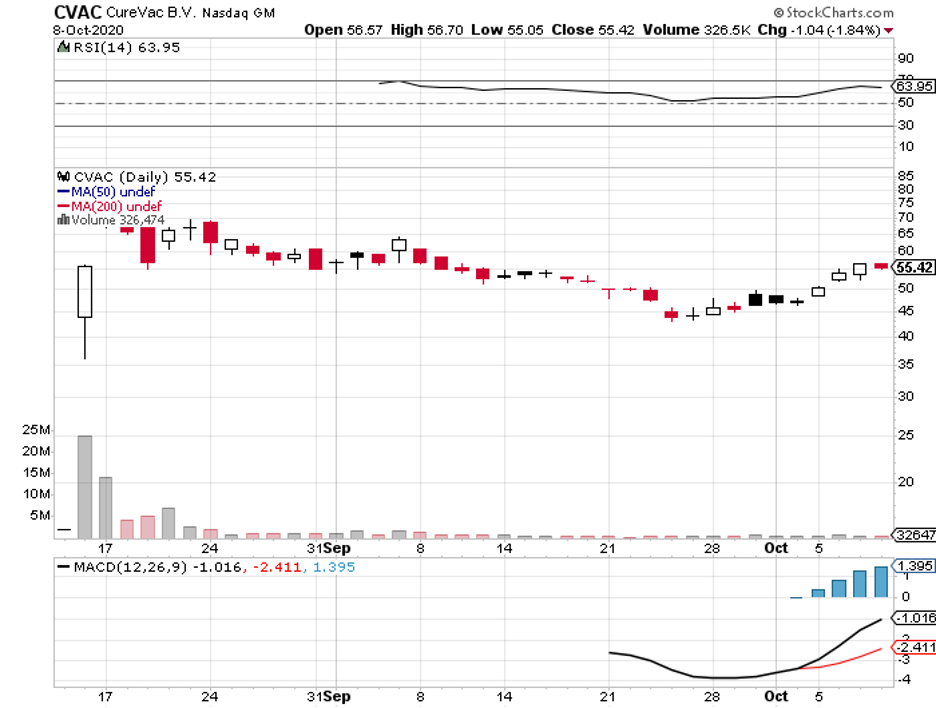The Underdogs of the COVID-19 Vaccine Race
It’s about time we talk about the German reinforcements brought in to fight this war against COVID-19.
For all the horror that this health crisis brought us, it’s nearly impossible to believe that there could be an upside to all these.
However, there is a bit of good news here.
Since the pandemic started, efforts to determine its origin, understand how it works, and search for a cure and vaccine have kickstarted innovation across the entire healthcare spectrum – from the familiar pharmaceutical sector to the volatile oft-misunderstood biotechnology field.
In fact, the biotechnology industry has received more attention in the past 10 months than the combined coverage of this sector since it was first introduced in 1919.
Nowadays, companies like Moderna (MRNA) have enjoyed practically round the clock coverage for their work.
So let’s take a look at the other up-and-coming biotechnology companies that have not received enough air time but are just as impressive.
In particular, let’s check out two of the German companies leading the charge in the COVID-19 vaccine race.
One company that isn’t getting enough credit these days is BioNTech (BNTX).
Since this German company paired up with Pfizer (PFE) in its vaccine development program, it rarely gets mentioned in the news.
After all, Pfizer with its $204.99 billion market capitalization makes for a bigger story compared to BioNTech’s $20.95 billion.
Nonetheless, the duo’s COVID-19 vaccine candidate, BNT162b2, is arguably the leading candidate right now – just ask Bill Gates.
If BNT162b2 succeeds, BioNTech stands to enjoy a financial windfall in the coming years.
So far, its vaccine program with Pfizer has secured them deals with the US, Canada, and Japan.
The German biotechnology company has also sealed an agreement with Fosun Pharma to supply 10 million doses to Macau and Hong Kong.
By 2021, BioNTech is expected to produce 250 million doses of the vaccine every six months.
This is enough to cover roughly 125 million people.
At a price of $19.50 for every dose, the company is estimated to earn $9.75 billion in annual revenue—not bad for a biotechnology company of its size.
The success of BNT162b2 could also mean additional leverage to propel the pipeline candidates in BioNTech’snmessenger RNA (mRNA) platform.
BioNTech has been working with Roche (RHHBY) in developing an mRNA therapy, called BNT122, to offer as a first-line treatment for melanoma and other solid tumors.
Apart from that, the company also has six early-stage mRNA candidates that target various types of cancer.
Aside from its mRNA technology-based programs, BioNTech is working with Denmark’s Genmab (CPH: GMAB) on three antibody therapies in early-stage trials for solid tumors and pancreatic cancer.
Another German biotechnology company flying under the radar is CureVac (CVAC).
A possible reason why it has not been generating that much buzz in the US is because it only conducted its initial public offering on the Nasdaq stock exchange in August.
Ever since the pandemic began though, CureVac has been one of the most active vaccine developers.
CureVac’s COVID-19 vaccine candidate uses the same technology as Moderna, which utilizes mRNA to trigger the body’s immune system to generate antibodies.
While Moderna has a huge head start in terms of clinical trials, CureVac may still have an advantage over the more popular biotechnology company.
Based on recent data, CureVac’s vaccine candidate shows more promise because it can take effect at very low doses of 2 to 6 micrograms.
In comparison, Moderna’s mRNA-1273 COVID-19 vaccine candidate requires a 100-microgram dosage.
Like BioNTech, the success of CureVac’s vaccine candidate would also bode well for the rest of the company’s mRNA candidates in its pipeline.
Two of those candidates are for cancer immunotherapies; one targets non-small lung cancer and the other targets a rare kind of cancer called adenoid cystic carcinoma. These therapies are also being studied for advanced melanoma as well as cancers of the head and neck.
Neither BioNTech nor CureVac has been hailed a household name in the US, and they may never reach that status.
Regardless, both companies will become extremely important and relevant for so many American households in the not-too-distant-future.
Due to the money they received to fund their COVID-19 programs, neither are in danger of running out of capital sometime soon or even take dilutive financing options as an alternative recourse. This stability, albeit short term, makes both biotechnology companies worth checking out.
More importantly, the pipeline programs of BioNTech and CureVac look promising despite being in the early stages.
All things considered, BioNTech and CureVac look like risky bets. However, these are risks with the potential to transform into massive rewards.
So, what should you do?
It all boils down to your investing style.
If you are an aggressive investor with high-risk tolerance, buy shares from dynamic biotechnology players that offer promising gains in a relatively short period.
Companies like BioNTech and CureVac, if successful in their COVID-19 vaccine efforts, could extend those gains to the long term and even leverage them to eventually market new products.
If you have lower risk tolerance, you can still make a play on these biotechnology companies. The key is to take a small position. This will limit your losses if things go south, but would also offer you rewards if the candidates work out.


